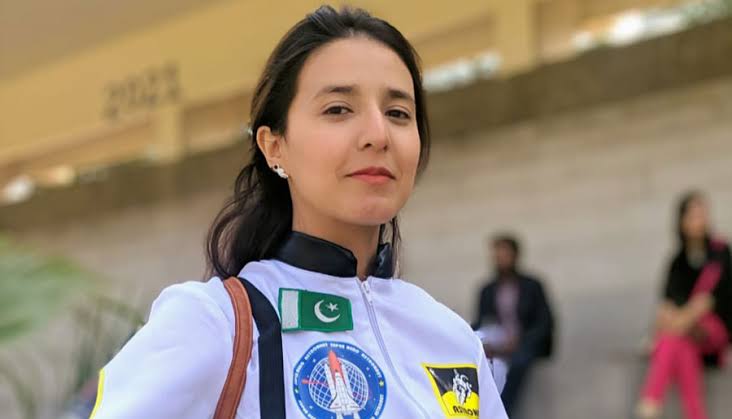Astrophysics for Everyone:
Unfolding Mysteries of the Cosmos
Fee: PKR 5000
For Students: PKR 3000
- 4 weeks
- 22nd December
- Thurs & Sat, 7PM - 9PM
How big is the universe?
Are we made of star dust?
Are we really alone in the universe?
What you'll learn
-
Understand the evolution of astronomy from the ancient to modern times.
-
Describe the physical mechanisms behind various cosmic phenomena.
-
Have a working knowledge of cutting edge areas in astrophysics.
-
Understand how astronomers use the scientific method to make discoveries.
Course Description
What is our place in the universe? Are we alone in the universe?
Will our sun explode? Are we really made of star stuff?
Do you remember seeing that blackhole image on your insta feed and asking yourself “What exactly am I looking at?” What exactly are black holes, and why are they so black?
Have you ever wondered what’s the deal with all those new planets making the headlines every week? What are the chances of an asteroid hitting us, and how big would one have to be to wipe out all life?
Making sense of the cosmos can seem like a daunting challenge but this course will break down the greatest mysteries of the Universe in a fun and digestible manner.
atomcamp brings a course for everyone who loved National Geographic’s StarTalk with Neil deGrasse Tyson, Cosmos with Carl Sagan, and Interstellar written by Kip Thorne. This course will engage and inspire people of all ages and will take them on more journeys into the wonders of the universe and beyond.
In a few weeks you will have a solid grasp of astrophysical phenomena ranging from stars to galaxies and super massive blackholes. Lastly you’ll also be able to appreciate the contributions made by many pivotal astronomers over the past few millennia.
Let’s Begin!
Where it all Began
History of Astronomy:
We will take a brief survey of the field of astronomy over a course of 2000 years across three major civilizations.
- Ancient Greece
- Islamic Astronomy
- European Astronomy
Sky is not the Limit
The Night Sky:
This module will begin to demystify the heavens as we shall learn how astronomers view the night sky and what role telescopes play a role in it.
- Celestial Sphere
- Constellations
- Magnitudes
- Telescopes
The Worlds Beyond our World
The Solar System:
We shall take a look at the formation and workings of our Solar System.
- The Sun
- Inner Planets and Outer Planets
- Other bodies
- Solar Nebular Hypothesis
The Birth, Life & Death of a Star
Stellar Astrophysics:
This module deals with the formation of stars, their life cycles and their final fates.
- Star formation
- Spectral Classification
- Life cycles of Stars
- End states of stars
Sisters of the Milky Way
Galactic Astrophysics:
In this module we will discuss the fundamental building blocks of the universe, Galaxies and their various types.
- Types of galaxies
- Ellipticals vs Spirals
- The Milky Way
Dark Secrets of the Universe
Cosmology:
In this module we shall touch upon the field of cosmology where we will look at the beginning, structure and eventual fate of the universe.
- Big Bang Theory
- Hubbles Law
- Fate of the Universe
- Dark Matter and Dark Energy
Special Topics
This module will cover topics of astrophysics that may be of special interest to students and are routinely seen making news headlines.
- Exoplanets
- Active Galaxies
- Extra-terrestrial life
- Gravitational Waves
Career in Space
Meet our Guest Speaker:
- Online
- 1st January
- 7pm - 8pm
- Saturday

Yamna Majeed
(Space Educator)
Trainer

- PhD candidate in astrophysics at the Nicolaus Copernicus Astronomical Center in Toruń, Poland.
- Masters in Astronomy from Boston University, USA, 2020
- Bachelors in Astronomy and Physics from Boston University, USA in 2018
Zain Mobeen
Frequently Asked Questions
No. This is a progressive learning course so enrollments for one week are not allowed
Remember that really cool blackhole image that appeared on your social media feed and how you wished you knew more? Well now this is your chance to learn more about that and other exciting objects in space.
Some basic physics and math. However the course will not be math intensive.
Primarily students but also anyone with a passion for the cosmos.
Yes, but there are a few conditions. You must complete all the assignments, have at least 75% attendance, and have scored reasonably well on your quizzes. This is just for us to ensure that you can grasp the fundamentals of the course before we certify you.
